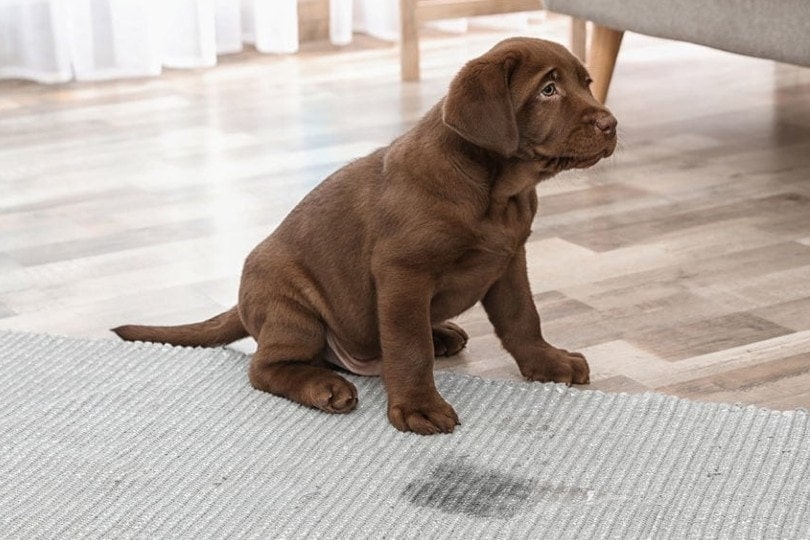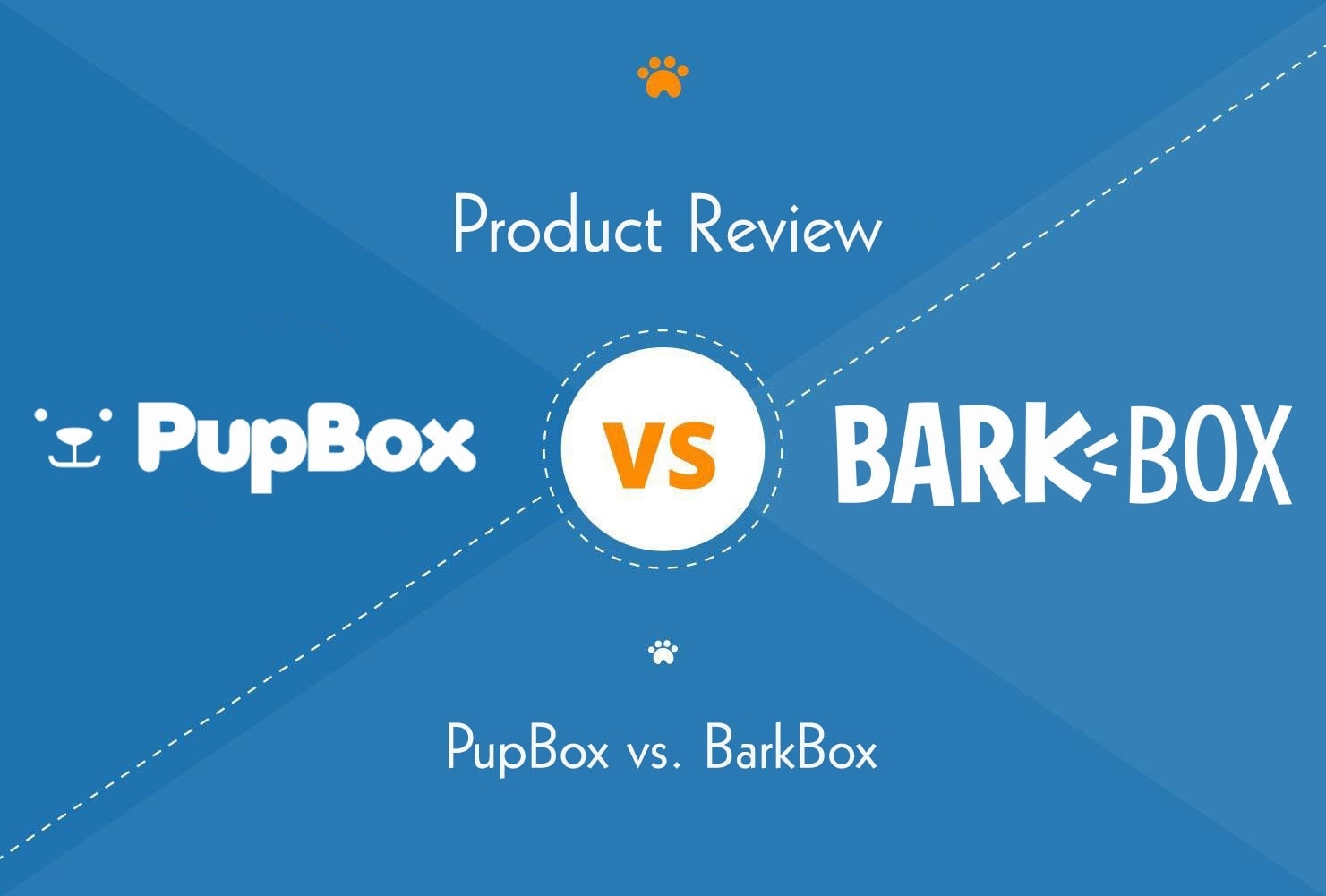23 Worst Dog Breeds for Allergies (With Pictures)

Updated on
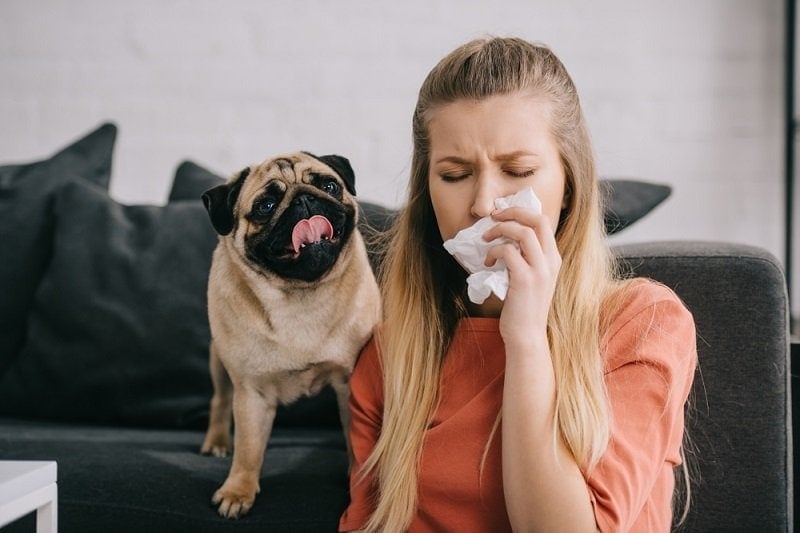
If you love dogs but have allergies, then you might feel like it’s an impossible dream to become a dog owner. That’s not the case at all! There are plenty of dog breeds with low-shedding hair that can make great pets for allergy sufferers. While you’re doing your research, it’s also important to figure out which dog breeds are the worst choice for allergy sufferers.
To help you out, we’ve created this list of the 23 worst dog breeds for those of us with allergies. Did you know that dog hair is not what triggers an allergic reaction? Allergies to dogs are usually triggered by dander, or small flakes of skin, from your dog’s coat. Their saliva, sweat, and sometimes their urine all contain proteins that can trigger an allergic reaction. Dog hair picks up these particles of dander, saliva, and so on and spreads them around the house as your dog moves throughout.
Some breeds are better than others in terms of shedding their hair, and this helps contain the allergens to some degree. Breeds that drool frequently are also not great for allergy sufferers, even if they have a low-shedding coat.
We’ve listed the breeds that we’ve identified as a bad choice for allergy sufferers alphabetically, so if you’ve got a particular breed in mind, simply head straight to that section.
The 23 Worst Dog Breeds for Allergies
1. Alaskan Malamute
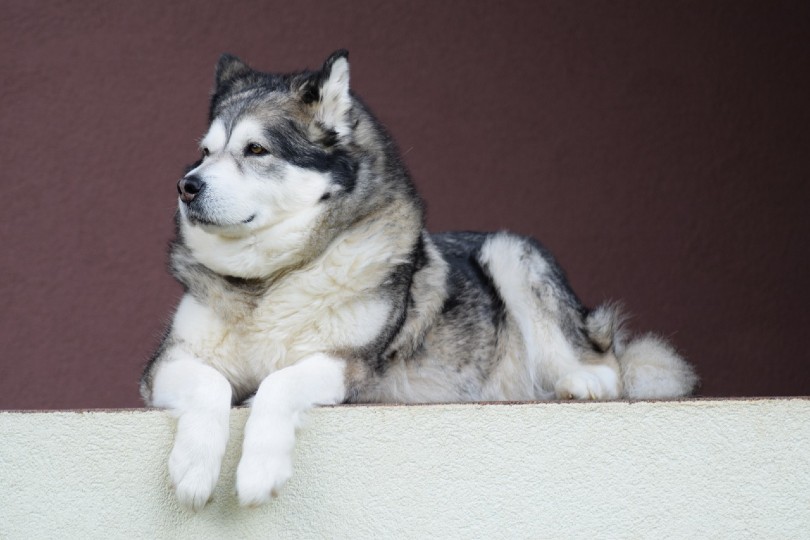
The Alaskan Malamute is well-known for their beautiful coats, but they require a huge amount of grooming due to the amount of hair that they shed. Their thick double coat will completely shed twice a year, and it can be hard to believe that so much hair can come from one dog. This hair, plus the dander that comes with it, is a huge red flag making it one of the worst dog breeds for allergy sufferers.
2. Akita
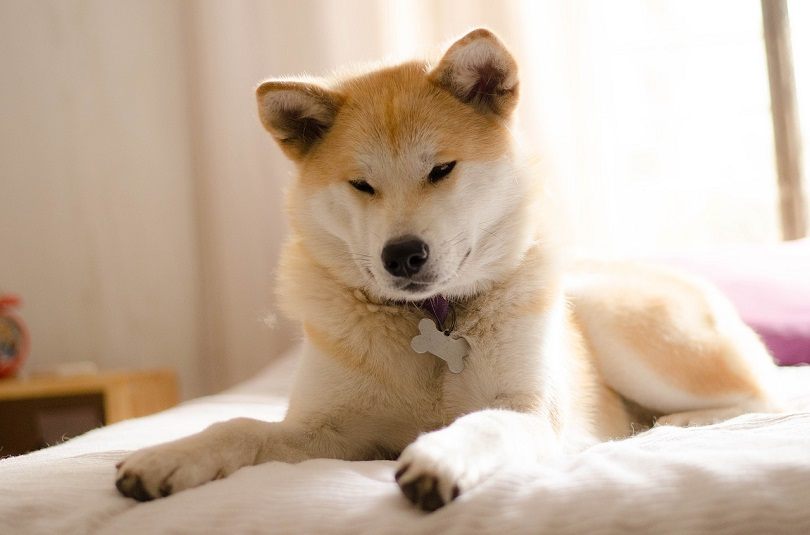
The Akita is a beautiful Japanese breed that makes loyal and watchful pets. Their dense double coat is incredibly thick and will shed hair throughout the entire year. In spring and summer, they “blow” their coat to coincide with the temperature drop. At this point, you’ll find yourself surrounded by hair and dander at every turn. No escape for allergy sufferers!
3. American Eskimo
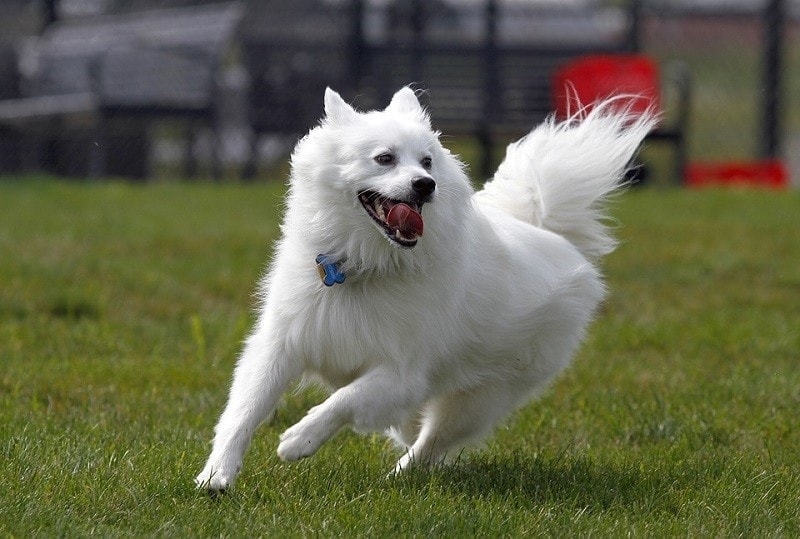
The American Eskimo breed is actually related to the German Spitz breed! They are small, but their thick double coat sheds all year round, leaving a trail of hair and dander in its wake. Even with grooming, you’ll still find hairs in unexpected places around your house.
4. Basset Hound
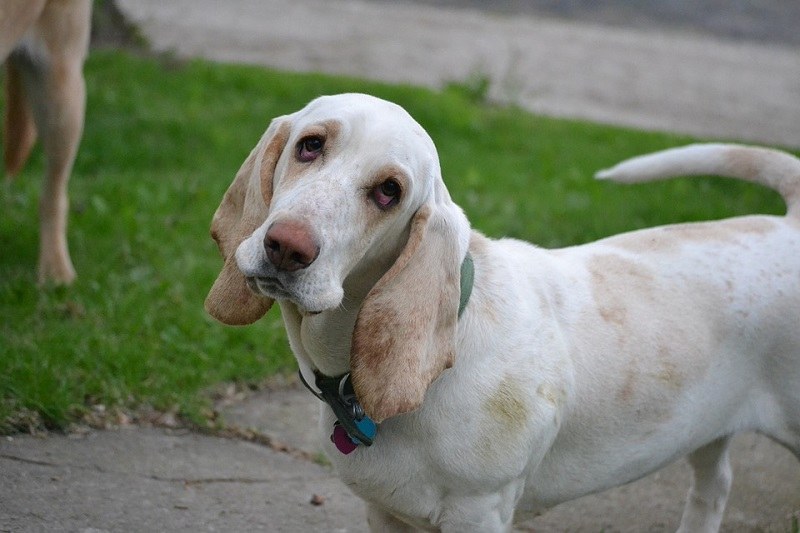
Basset Hounds might be sweet tempered and laidback most of the time, but they also produce a great deal of dander and are quite drooly! Their coats are short and smooth, but they do shed moderately all year round. Basset Hounds are also known for being a bit difficult to house train, so if your dog has an accident and pees in the house, this will also trigger allergy flare-ups.
5. Bloodhound
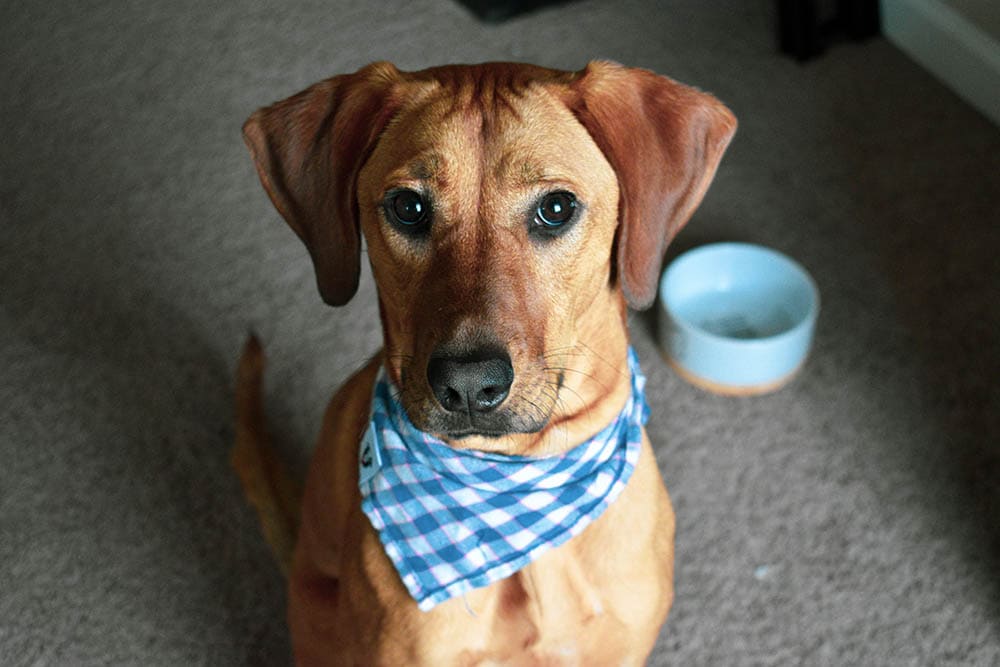
Bloodhounds might be fabulous scent hounds, but you probably also know that this breed is famous for the sheer amount of drooling that they do! As saliva is one of the main dog allergens that causes a reaction in humans, this makes the Bloodhound a poor choice if you know that you have allergies to dogs. Their short coats also shed an above-average amount of dander.
6. Boston Terrier
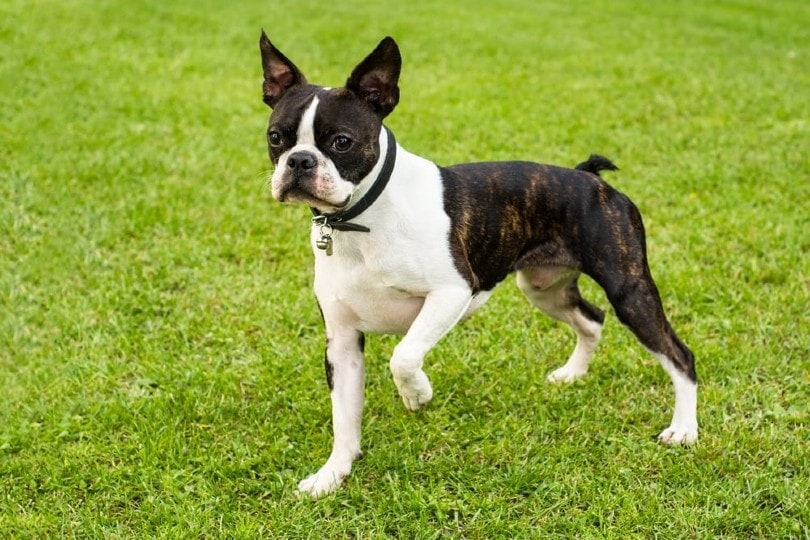
Boston Terriers are small and cute, but they’re still not a great choice for anyone looking for a breed that’s suitable for allergy sufferers. They shed a large amount of dander, and this will get left on every surface that they’ve been in contact with. Cleaning this up is a big challenge and one that will take up a huge part of your day if you’re trying to minimize allergens.
7. Boxer
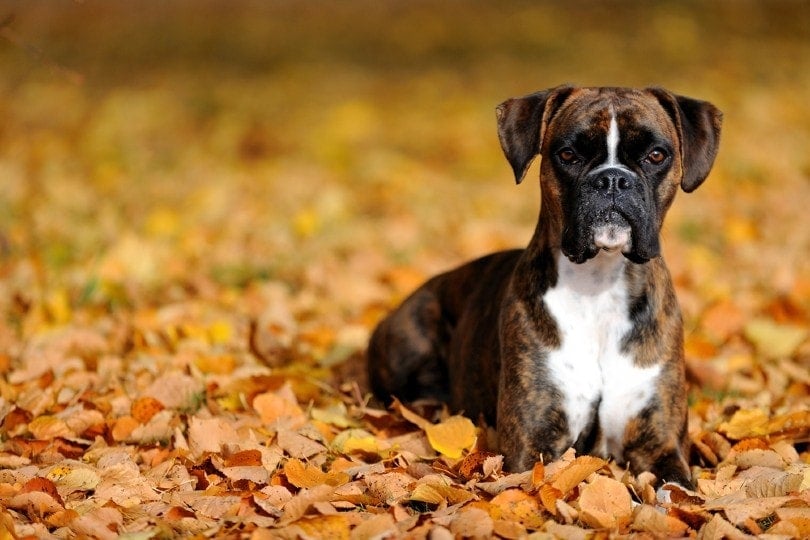
The energetic Boxer might look like a good choice for allergy sufferers at first glance, due to their short coats. Sadly, that’s not the case! Boxers are well-known for drooling, so you’ll find that their saliva gets spread throughout your house. They also shed constantly, and with shed hair comes dander, another problem for allergy sufferers.
- Related Read: 11 Dogs That Look Like and Are Similar to Boxers
8. Chow Chow
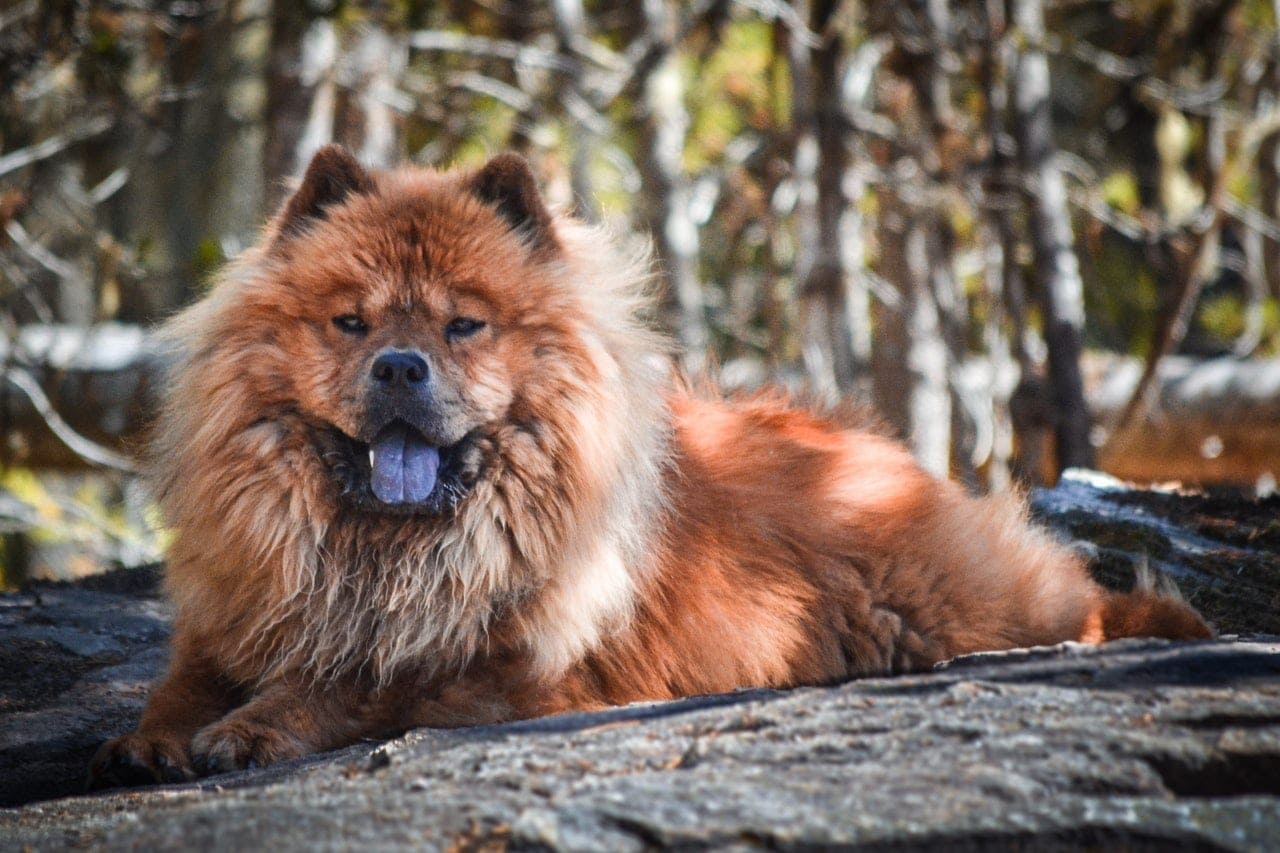
The huge Chow Chow has an incredibly thick double coat designed to keep them warm during Siberian winters. This also means they shed a huge amount of fur and dander on a daily basis, so they’re not a breed that will suit a family with allergy sufferers in it. They’re also territorial and protective so can be a challenging breed to own in more ways than one.
9. Cocker Spaniel
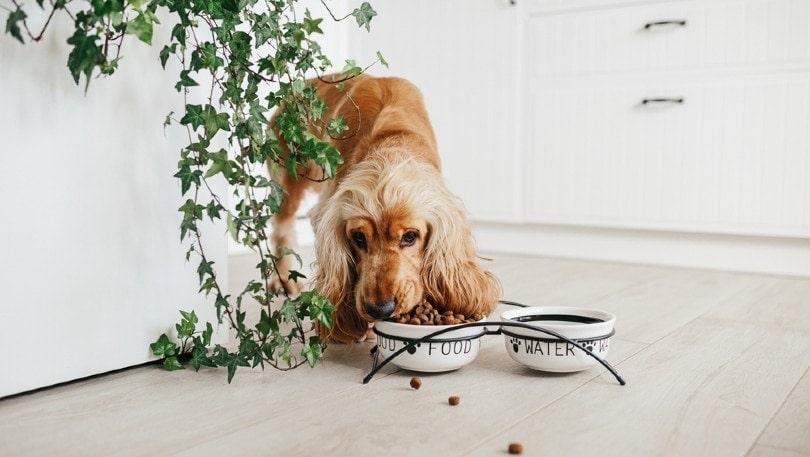
Cocker Spaniels have a gorgeous soft and velvety coat that is lovely to look at but will cause no end of issues if you have an allergy. The shed hair and dander will cause allergy flare-ups wherever it ends up in your house. Their sensitive skin means they can also have allergies, which risks more dander being spread around your house.
10. Dachshund
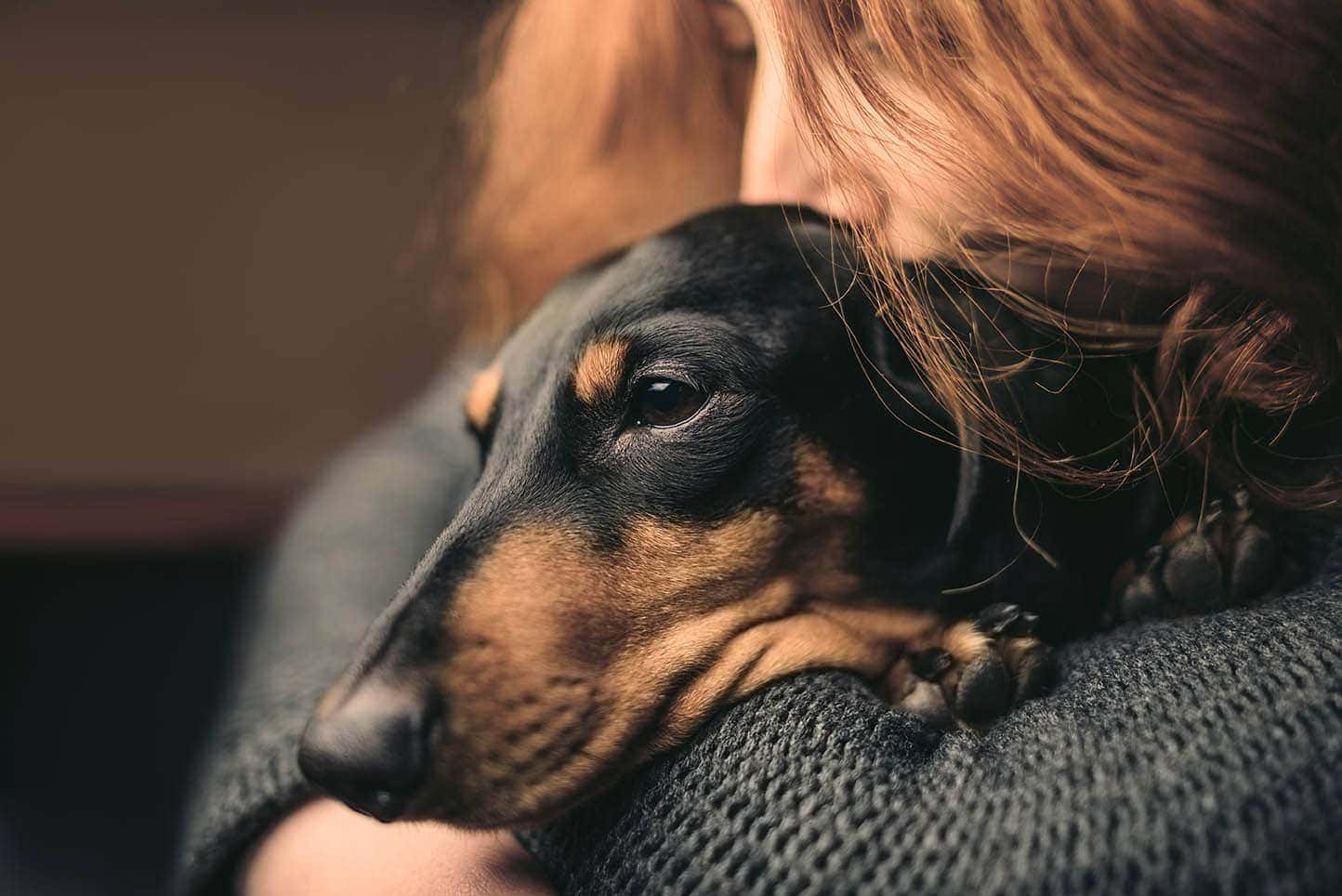
Dachshunds can have three different coat types: short haired, long haired, and wire haired. These all shed quite frequently, so you will find hairs all over your house! Dachshunds can also have sensitive skin, which can lead to an above-average amount of dander as well. As one of the main causes of allergies, dander is definitely a no-no.
11. Doberman Pinscher
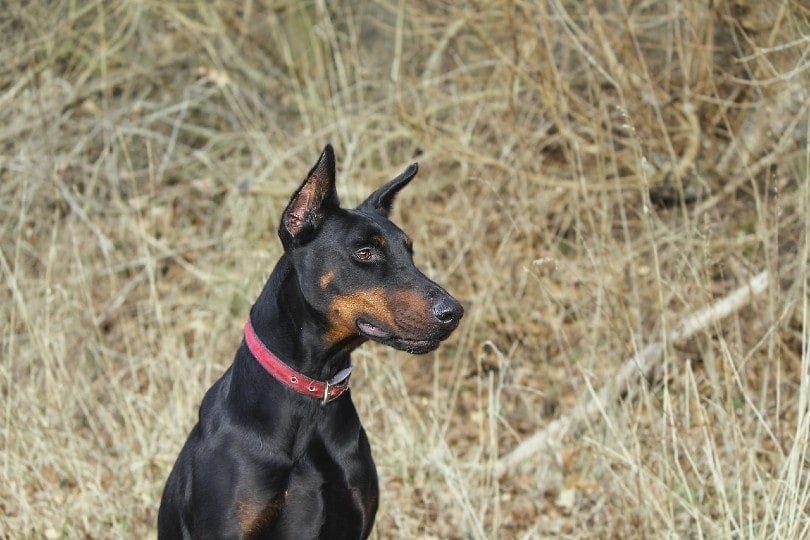
Doberman Pinschers are your classic guard dog breed, but they’re incredibly affectionate and loving with their family members. While the Doberman Pinscher does have a smooth and short coat, this does shed a moderate amount all through the year. Of course, that means dander will be left anywhere this breed goes.
12. English Bulldog
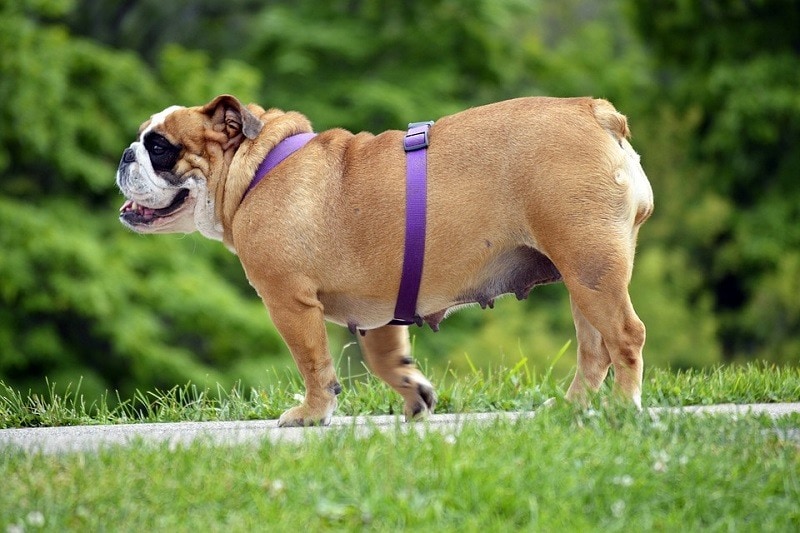
At first glance, the English Bulldog might seem like an okay choice of breed if you’ve got allergies. Don’t be fooled by their short coat, though; this sheds hair all year round and has dander with it too. They also drool more than most breeds, so they’re not a good choice if you’re trying to keep allergens to a minimum.
- Related Read: Best Brush for English Bulldogs − Reviews & Top Picks
13. German Shepherd
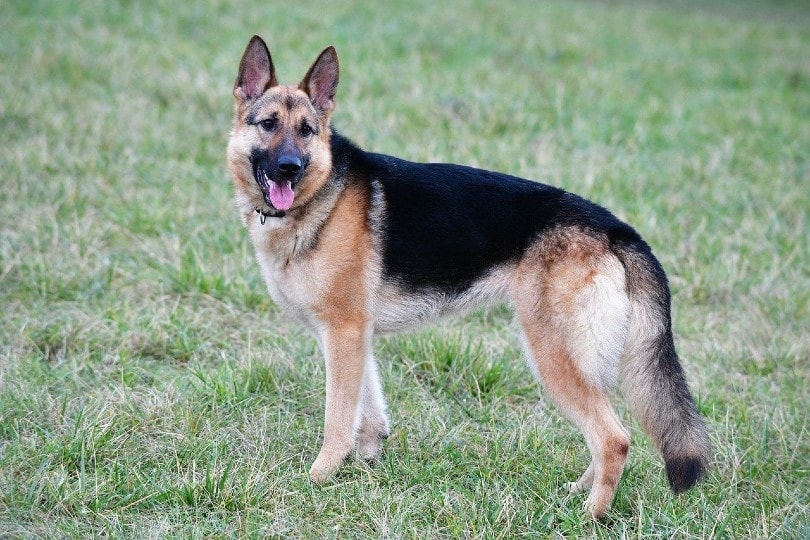
The beautiful and noble German Shepherd combines intelligence and loyalty into one highly trainable breed. Sadly, their double coat sheds little and often, all year round. That means you’ll be facing a daily battle to deal with shed hairs and dander, and allergy sufferers will find that this might just be too much to cope with.
14. Great Pyrenees
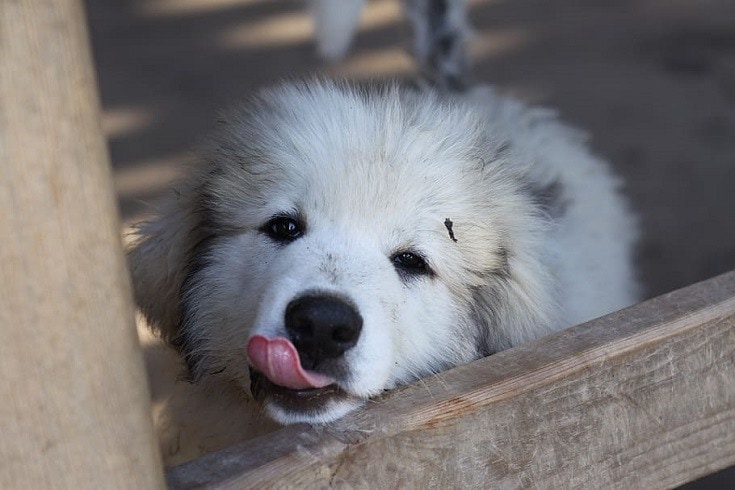
The bigger the dog, the more hair and dander they can drop! Great Pyrenees can weigh up to 132 pounds (60 kg), so that’s a great deal of body with a large amount of fur! Their thick double coat requires frequent grooming and will shed twice a year. At this point, it can be a struggle to keep control of shedding hair and dander, no matter how much time you spend brushing them.
15. Labrador Retriever
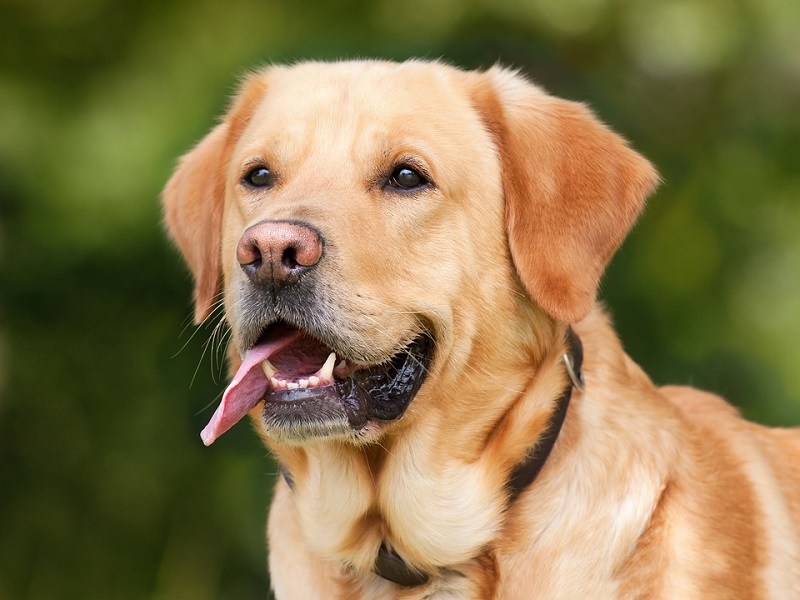
The wonderful and fun-loving Labrador Retriever is the most popular breed in the U.S.A. and for good reason. Unfortunately, if you’ve got dog allergies, this breed won’t suit your needs at all. They shed constantly, all year round. This leaves dander over every single surface in your home, meaning you’ll be fighting a losing battle against sneezes.
16. Newfoundland

Newfoundland dogs — or Newfies, as they’re also called — are huge! This alone increases the number of allergens in your home. Add that to the fact that their double coat carries dander with it when it sheds, and you’re looking at more sneezes right there. They also drool a huge amount, so those three factors combined are more than enough to bring on an allergy flare-up.
17. Pekingese
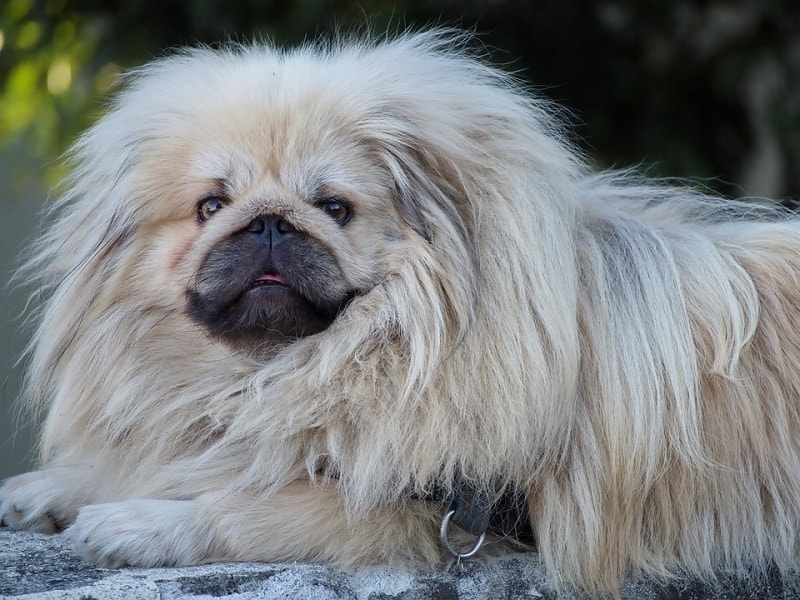
Pekingese are small, so you might think that they’d be a good choice for allergy sufferers. Sadly, their long coat leaves shed hair and dander about your home. But the main issue with the Pekingese is that they can be a challenge to house train. That means urine spots can be left around your house, and removing every trace of these from carpets and furnishings can be a challenge.
18. Pomeranian
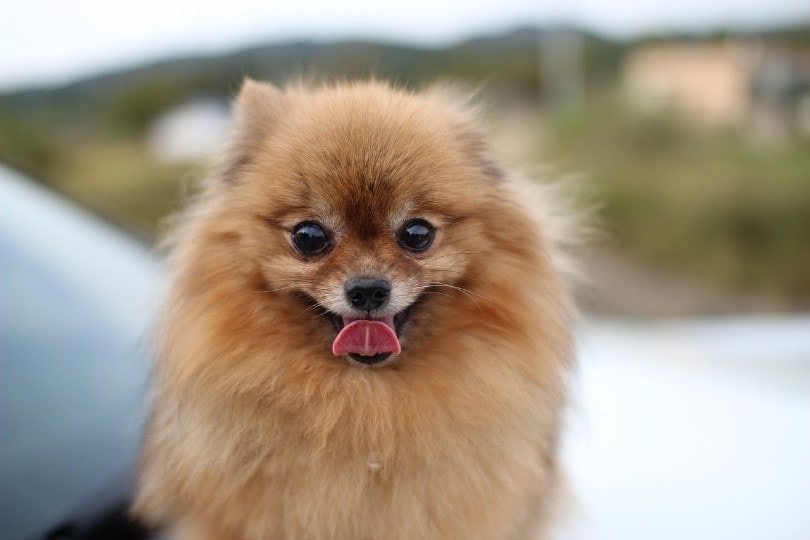
These cute little dogs are small enough, but their thick double coat still means they leave more than the average amount of hair all over your house. They also drop dander, which will cause allergy flare-ups. Pomeranians can be difficult to house train, so if they have an accident and pee in the house, that can trigger allergies as well.
19. Pug
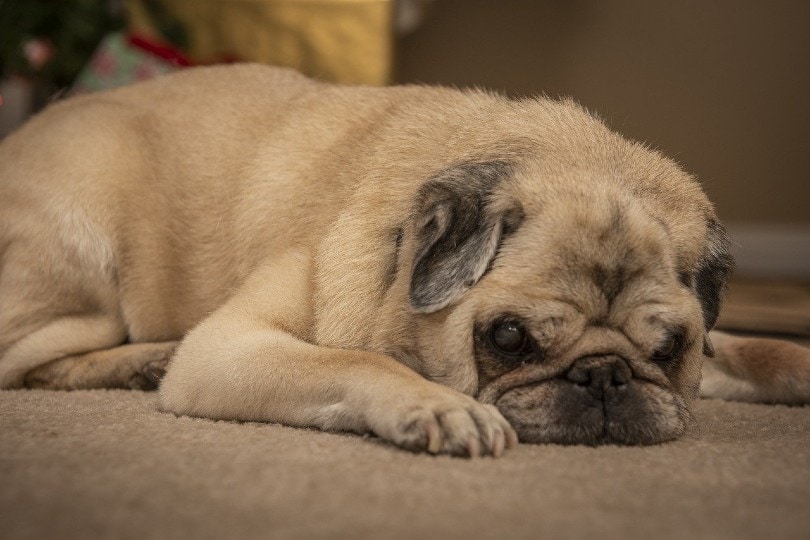
We know that Pugs are super cute, and their small size and short coats might make them seem like a good choice if you have allergies. Unfortunately, Pugs have sensitive skin themselves, which can often lead to their skin drying out. That means more dander being left around your house, and of course, that means allergy flare-ups for humans!
- Related Read: Best Brush for Pugs Reviews & Top Picks
20. Saint Bernard

The Saint Bernard is a huge breed that does everything that an allergy sufferer doesn’t want! They shed hair due to their medium-length, dense double coat. They also leave dander around the house, simply due to their huge size. Lastly, they can’t help but leave trails of drool wherever they go, which is one of the worst things for anyone with dog allergies.
21. Siberian Husky
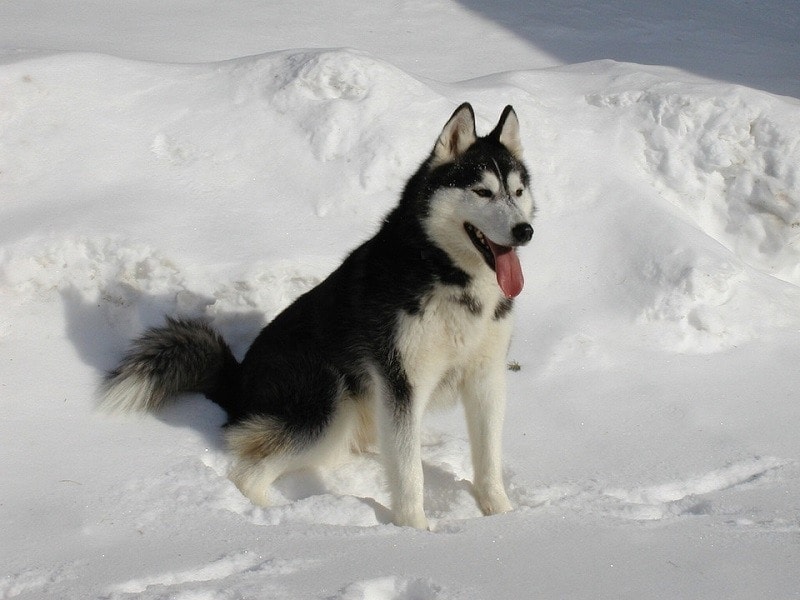
Siberian Huskies are beautiful and energetic dogs. They also have a dense double coat that protects them from extremes of temperature. Their coat usually sheds twice a year, as the temperatures change, and at this point, there will be a huge amount of hair and dander circulating your house!
22. Springer Spaniel

The sweet and bouncy Springer Spaniel can make a wonderful pet, as well as being a dedicated working breed. While they don’t shed a huge amount of fur, they can suffer from skin conditions, including dandruff. These can lead to dander being shed on anything they come into contact with in your home.
23. Welsh Corgi
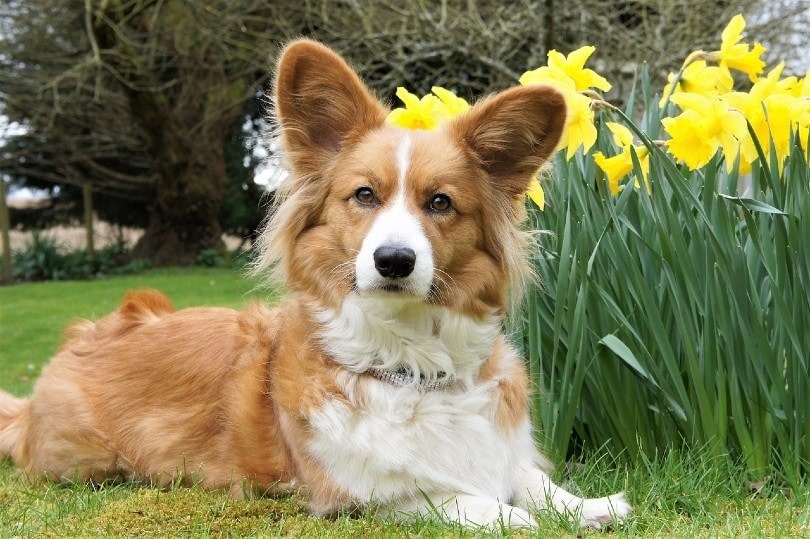
Both varieties of Welsh Corgi, the Pembroke and the Cardigan, have thick double coats of short hair. They are prolific shedders, so even though they might be small dogs, they’re going to leave a trail of hair and dander wherever they go. You can minimize this with daily grooming, but no matter what you do, these little pups will keep on shedding.
Final Thoughts
This list had 23 breeds of dog that are probably the worst choice for anyone who has allergies and is looking to become a dog owner. Remember, though, that any dog breed could trigger allergies.
Choosing a breed that doesn’t drool much, has a low-shedding coat, and doesn’t seem to suffer from skin allergies of their own will all increase the chances of you being able to live comfortably with a dog in the house.
Keeping a regular grooming schedule, as well as cleaning your house using a vacuum designed to remove pet allergens, will help keep those sneezes to a minimum.
Check out our list of the best hypoallergenic dogs here
- How to Treat and Unclog Your Dog’s Stuffy Nose
- 8 Types of Dog Coats & Their Differences (With Pictures)
Featured Image Credit: LightField Studios, Shutterstock



